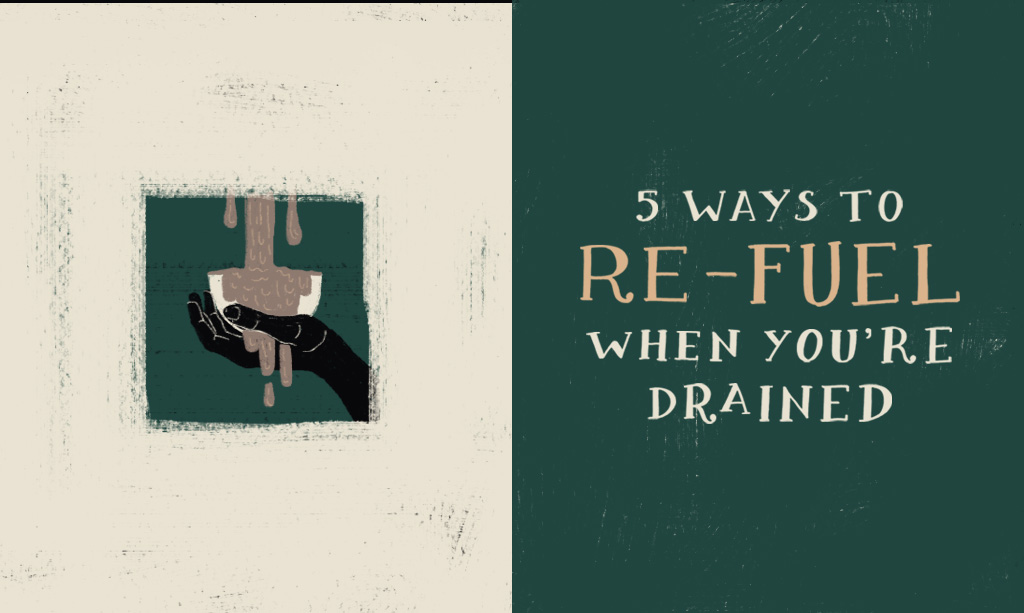Finding Strength to Love God When You’re Weak
Written By Vanessa Matelski, USA
The Bible has a lot to say about strength. Biblical figures, like Joshua and Gideon, were called to be strong. The Psalms are littered with David’s musings on the topic. And when Jesus was asked, “Which is the most important [commandment]?” He answered, “Love the Lord your God with all your heart and with all your soul and with all your mind and with all your strength” (Mark 12:28-30).
But what does all that mean when you’re actually pretty weak?
I have a chronic illness called Postural Orthostatic Tachycardia Syndrome—or POTS, for short. POTS affects every part of my body, from my brain down to my toes, because everything a body is supposed to do automatically, mine either does improperly, or not at all. I daily experience intense fatigue, palpitations, poor circulation, pain, and a fun thing called brain fog.
A lot of the time, I am physically very weak. In fact, a lot of the time, I’m too tired to move. Too weak to lift my head off the table. Too exhausted to make myself a sandwich.
So loving God with “all my strength” often doesn’t seem like a whole lot of love.
But the cool thing about the Bible is that the word “strength” doesn’t always refer to physical ability. It refers to something deeper—something that, in English, we have a hard time translating.
The Bible Project has a really cool video about this occurrence of the word “strength,” and they propose that the Hebrew word, “me’od” used in Deuteronomy 6:5, where this command originally comes from, might be more accurately translated to “muchness.”
Love the Lord your God with all your . . . muchness.
But what does that actually mean?
According to the New Oxford American Dictionary, the word “muchness” means “greatness in quantity or degree.”
Greatness in quantity or degree.
God wants you to love Him with the greatest quantity of you. He wants your heart, your soul, your mind—and the you which inhabits all those spaces. God wants you to love Him with all your authenticity—all that is genuinely you—all your muchness—all your strength.
We Love with a Strength That Isn’t Ours
Often, when the Bible talks about strength, it talks about how God is our strength.
“The LORD is my strength and my defense . . .” (Exodus 15:2)
“You are my strength; come quickly to help me.” (Psalm 22:19)
“The LORD is my strength and my shield . . .” (Psalm 28:7)
“God is our refuge and strength, an ever-present help in trouble.” (Psalm 46:1)
“You are my strength, I watch for you . . .” (Psalm 59:9)
“The LORD, the LORD himself, is my strength and my defense . . .” (Isaiah 12:2)
“The Sovereign LORD is my strength . . .” (Habakkuk 3:19)
I think you get the idea.
When God is our strength, that strength is often internal. God strengthens our hearts and minds and fortifies our souls. He proves Himself strong over and over again, not in spite of our weaknesses, but because of them. He promises to renew and restore us—but renewal and restoration often happen spiritually, mentally, and emotionally. Not necessarily physically.
Weaknesses Make Up Our Muchness Too
God wants you to love Him with everything you have—and that might mean physical strength! If you’re strong, healthy, and able-bodied, rejoice! Use the marvelous gift God has given you to love and honor Him. Seek His will in how you use your strength—in what you devote it to—in the many ways it impacts your life. Love the Lord your God with your physical strength, because it is a part of your muchness—a part of what makes you, you.
And if you are not physically strong? If you are weak and sick and disabled?
Rejoice!
I say it again—rejoice.
You are not alone in your weakness.
The Apostle Paul was like you are—physically weak. But in his weakness, God’s strength was all the more visible. Paul talks about his weaknesses, his struggles, his sufferings in 2 Corinthians—and in 2 Corinthians 12:10, he even says he delights in his weaknesses! “For when I am weak, then I am strong.” Paul was physically weak—but he was strong in his faith, his conviction, his mission, his muchness.
He loved the Lord with all his heart, soul, mind, and weakness.
And we are called to do the same.
We are called to love the Lord our God with our weakness—our illness—our disability—because these are all parts of our muchness. Each of these things play a part in making you, you.
I can tell you, from personal experience, that it’s hard to love God with these things that make daily life so difficult. It’s hard to seek God’s will in how I use my weakness, illness, and disability, whether it’s through speaking engagements, conversations with friends, social media, art, or writing. Sometimes I don’t want to use them. Sometimes I feel like I can’t use them. After all, it’s not easy being exhausted—being in pain—being dizzy and nauseated and just so dang tired all the time.
It’s not easy to have this be a part of my muchness.But for whatever reason, it is. And I have been called to love the Lord my God with every part of me.
My heart.
My soul.
My mind.
My strength.
My weakness.
My muchness.
And you have been called to do the same.
Find Your Muchness!
So ask yourself—what are those things that make you you? Can you deadlift 350 pounds? Are you skilled at playing an instrument? Do you have a knack for writing? Are you really into making movies? Can you find the right words to encourage and comfort others? Do you understand another’s pain? Are you a compassionate listener? Can you sit quietly when someone cries? Can you make people laugh?
And then ask yourself—“How can I love God with this?” Because all those things—those are your muchness. Those are your strengths. Those are the things God wants you to love Him with.
“Strength” doesn’t just mean being physically strong. It means God wants you—and whatever it is you have, whatever it is you are, whatever it is you do—because it’s those things that, all together, make you, you.
Whatever it is that makes up you—love the Lord your God with it.











Leave a Reply
Want to join the discussion?Feel free to contribute!